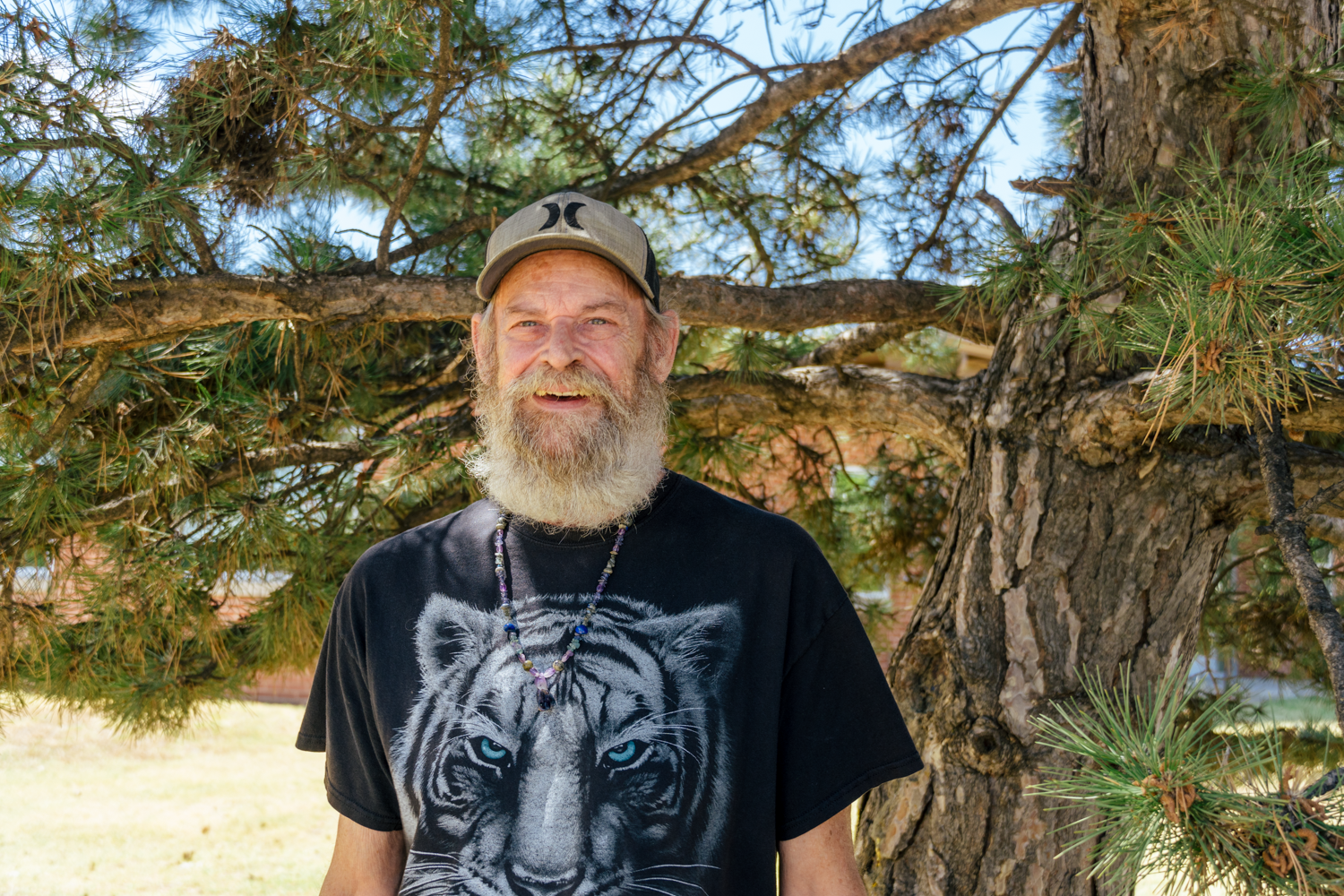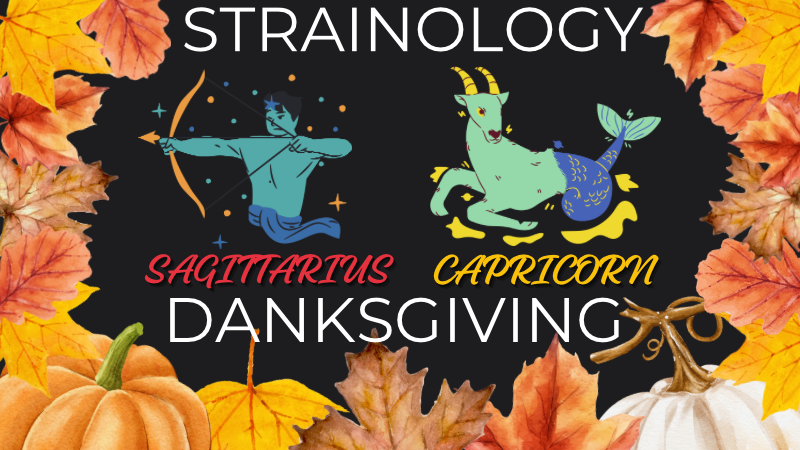By Michael Kinney
Steve Miller has tried to live a peaceful life. Despite numerous medical battles, he does his best to stay stress-free.
However, in early July, Miller was at his breaking point. It was a place he had been just a few times in his 69 years of life. But this time it was worse.
Miller suffers from a disease called Essential Tremors. It causes his body to violently shake, especially when his anxiety rises. As Miller cared for his sister, who was going through her own issues, he had what he called a psychotic break that affected him mentally, emotionally and physically.
“When she was trying to get off alcohol and stuff we both kind of started feeding off each other’s anxiety she ended up in the hospital and going to the emergency room because she didn’t know how to handle it,” Miller said of his sister. “I didn’t know how to help her. She actually had seizures that morning. So, I called an ambulance and got her. And then she got back home. And I, I can’t tell you how many days it was, but about 3, 4, 5 days later, I had to call 911 for me and take me to the emergency room, full chest pains.”
Miller said the pains felt like he was having a heart attack and he couldn’t breathe
“I had been shaking so much for so long and so hard that my intestines were just tied in a knot,” Miller said. “. Once you get anxious, you kind of get a little bit psychotic when it gets real bad.”
Essential tremor is a hereditary affliction that has been passed down through Miller’s family and landed on both him and his sister. However, he wasn’t diagnosed with it until he was 46 years old.
Up until then, no one knew what caused Miller’s violent shaking or any of the other host of issues associated with the disease.
“Growing up didn’t have a clue what it was,” Miller said. “My dad shook. He’s who I got it from was from his side of the family. I remember my grandmother shaking a lot.”
Miller said his grandmother sounded like the late movie star Katherine Hepburn, who was also diagnosed with essential tremors in the later stages of her career.
According to the Harvard Medical School, essential tremor affects about five percent of people over age 50. The intensity of the shaking from essential tremors can be mild to very significant. Also, the tremor can vary in location, being most prominent in the hands, head or voice.
For Miller, the symptoms began when he was a kid growing up in Guthrie.
“I want to say it was around six, seven years old,” Miller said. “I’d go to play with other kids and they’d noticed me shaking. I didn’t notice it was supposed to be anything different. They laughed at me about it and stuff.”
To Miller the shaking was normal. He was still able to function and do all the things kids his age could do. But that didn’t mean it didn’t affect him in different ways.
 “I was put back in first grade because I couldn’t write. I start to write and I couldn’t, it wasn’t legible to them,” Miller said. “So, I got put back in first grade because of it, they don’t didn’t have a clue what this was back then. And not very many people, especially schools don’t know what it is. I’d actually run people off from being friends. It scared them. I couldn’t tell him what it was because you didn’t know.”
“I was put back in first grade because I couldn’t write. I start to write and I couldn’t, it wasn’t legible to them,” Miller said. “So, I got put back in first grade because of it, they don’t didn’t have a clue what this was back then. And not very many people, especially schools don’t know what it is. I’d actually run people off from being friends. It scared them. I couldn’t tell him what it was because you didn’t know.”
That left Miller to figure out how to navigate through life while dealing with a disease seemingly no one knew anything about.
“I just found ways of getting around it. Of course, I’d shake, but I was able to do things and play,” Miller said. “But if it was something real tedious I couldn’t do it. It was hard to make friends and keep friends when I was young. This is an anxiety-driven disease. I mean you get out and you just know somebody’s going to bring it up and you don’t want to talk about it. A lot of people with essential tremors stay hidden, especially when they get older and they’re as bad as I am shaking. That’s one reason I get out. To get people to understand that there is a disease out here causing this.”
While essential tremor is often mistaken for Parkinson’s disease due to the shaking, Miller says the two are different in several ways.
An essential tremor is an action tremor, meaning that the involuntary shaking increases when you move and try to use your hands. In Parkinson’s disease, tremors occur mainly at rest, and activity reduces the symptoms. Some people with essential tremors develop head nodding or shaking; few people with Parkinson’s do, according to Harvard Medical School.
“It’s totally the opposite of Parkinson’s. With Parkinson’s most of their tremors happen when they’re at rest,” said Miller. “No muscle movement or anything. That’s when their tremors start, they’re shaking. With essential tremors. It’s when you do something, anytime you engage a muscle.”
One of the hallmarks of essential tremors, useful in diagnosing the disorder, is that alcohol can temporarily ease symptoms. Miller discovered this remedy early on and used it for most of his life to help him cope.
“From the time I was a teenager until about five years ago, I’ve kept it under control with alcohol,” Miller said. “Drinking alcohol calms not only the shaking outside, it calms the inner trimmer I have. And it helps with anxiety. So, it affects it all. It helps with all three of them. It will keep it hidden so I wasn’t having a lot of trouble with it as long as I was drinking.”
Unfortunately for Miller, prostate issues related to too much alcohol made it impossible for him to keep drinking alcohol.
“I quit about six, seven years ago,” Miller said. “I’d have a drink every once in a while, just to see if my prostate could handle it. I decided it was not working, so I had to completely quit two years ago.”
Miller knew drinking that much alcohol was not good for him. Despite seeing how it affected other members of his family who also had essential tremors, he said the positives outweighed the negatives.
“My big older sister had it and she was this bad in her thirties,” Miller said. “It affected her real bad and she ended up committing suicide with alcohol because of it. And her son did the same thing.”
Without the use of alcohol, his symptoms became worse and more uncontrollable.
Since there is no known cure for essential tremors, that led Miller to look for any other possible remedies. He said there are medications for other diseases that he can take, but nothing specifically for essential tremors.
“There are two surgeries that they’ll do. The first one is DBS surgery and it’s where you basically have a pacemaker for your brain. But it doesn’t help the cognitive or the inner tremor,” Miller said. “So I elected not to do it because the outer shaking doesn’t bother me anymore. I get out and be around people and it helps me get the word out. I just kind of decided that no if I’m going to get the word out, people need to see what I’m doing. See how I react when I get out in crowds and stuff like that.”
The decision to become an advocate for essential tremor education and awareness was an easy one for Miller. He was spurred on not just by the memories of his own childhood, but also from watching two marriages end due to his disease.
“You can’t think so you keep overthinking everything and it just feeds it and feeds it and feeds it. And that’s what happened the two times before. One of them ended up getting divorced because of it, I just couldn’t handle anything going on anymore. I had to get away from everything, But I was married the first time for 15 years and had two kids. And the second time I was married for 25 years. I was trying to escape from the tremors, right. The anxiety is what I was trying to get away from. I just couldn’t handle it anymore both times.”
Miller now uses medical cannabis to help him deal with his disease. A variety of products have helped him deal with the disease.
“I started using about two years. I found some pre-rolls that helped me pretty good,” Miller said. “And then somebody suggested I try an RSO. So, I started taking RSO at night at about 8:30 and by midnight I’m asleep. I’ve never slept a full night’s sleep. Very seldom ever did I get to the rim sleep. the real good sleep. So, RSO helped me get to where I could sleep at night. I’ve been using RSO every night since, cause I can rest and stuff.”
Just being able to get a full night’s sleep for the first time in his life has enabled Miller to have a little better control of his anxiety and lets him do what he loves, which is meeting new people.
“I love talking to people and everything, but the anxiety, just leaving the house to go to the grocery store to go do anything will start this out,” Miller said. “And it gets pretty intense. I love to go to events and talk to people. I love people. I love talking to them right. It’s one of my favorite things to do and being around the crowd, but it’s kind of a catch-22 because it causes this to happen.”
Almost as important as the physical effect cannabis has on Miller is what the cannabis community has done for him emotionally and mentally. For the first time, he says he knows what it is like to have friends.
“The people caring, never had that in my life. Really. That’s the biggest thing is people showing me love and I can feel it is from their hearts that they really do care about me and trying to help me get the word out about this disease,” said Miller. “I’ve actually got friends now and they understand the disease and they accept it with me. And that’s been the biggest thing in my life. The cannabis family has helped me so much just being there.”
It was during Miller’s latest breakdown that the cannabis community showed up in force after he made a simple post on his Facebook page that he needed help.
“I was at the end of my rope with it. I just posted on Facebook that I need help,” Miller said. “But I had probably 15 different people reaching out and one was on his way over to the house. He helped me get to the hospital and then helped me get my sister back home and everything. And that was just amazing. Another person came and spent the night and stayed to help me get through that night and most of the next day and everything I’ve never asked for help, but I knew I needed it. I didn’t know what else to do. I couldn’t think of anybody to call. I couldn’t think of anything else to do, but to that, just put it out there. And, and they jumped in there. I don’t know of any other group that would do that. No other group has done that before. I mean, nobody that I’ve ever been around,”
had probably 15 different people reaching out and one was on his way over to the house. He helped me get to the hospital and then helped me get my sister back home and everything. And that was just amazing. Another person came and spent the night and stayed to help me get through that night and most of the next day and everything I’ve never asked for help, but I knew I needed it. I didn’t know what else to do. I couldn’t think of anybody to call. I couldn’t think of anything else to do, but to that, just put it out there. And, and they jumped in there. I don’t know of any other group that would do that. No other group has done that before. I mean, nobody that I’ve ever been around,”
Miller knows as he gets older, his symptoms will only get worse. The things he has grown to enjoy over the past few years with the help of medical cannabis will no longer be available for him to do.
But while he still can, Miller wants to get the word out about essential tremors. He says there are 10 million nationwide who suffer from the disease, but very little research is being done. He wants to change that.
“The biggest thing that I want to do is get research started to make specific meds for this disease, but they can’t come up with a specific me until they start talking to us and listening to us. I want to get the word out and hopefully write a book on my life,” Miller said. “That’s something I’ve been working on. I’ve got 22 pages written. It’s kind of scattered because my brain’s kind of scattered. Sure. But that’s something I really want to do is get the book and explain how this affects you in each part of your life and everything. Old age is bad, you know. But old age and essential tremors are even more.”
Miller’s favorite saying comes from Mahatma Gandhi. It states, ‘In a gentle way, you can shake the world.’
“That’s always been my thing is that I’ve followed that through my life because I am a gentle soul,” Miller said. “Going through this I’ve learned that I am a kind person, I’m a good person. I’ve always felt like I was bad.”




